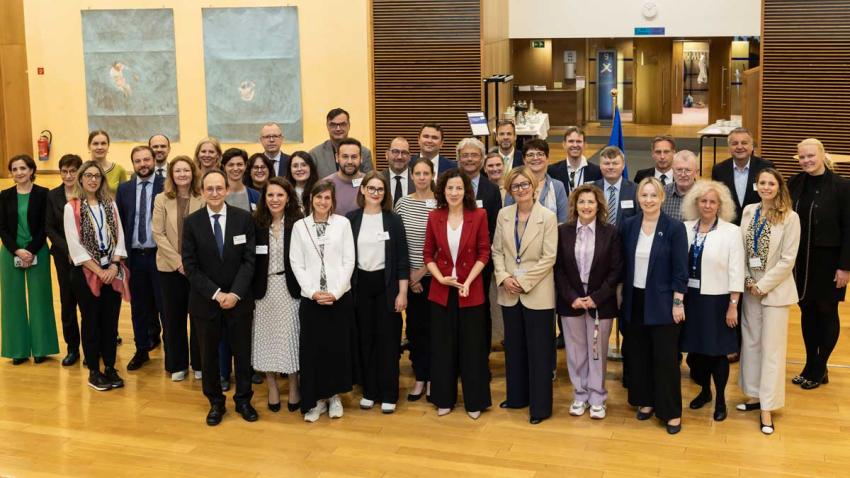Implementation Dialogue on the European Education Area
Inclusive and high-quality education and training is the foundation of Europe’s competitiveness, democracy and resilience.
While important progress has been made, work remains to be done to address challenges across Member States:
- declining basic skills
- growing shortage of teachers
- growing inequality
- weakening democratic engagement
European education and training systems are still adapting to the digital and green transitions.
To step up action and build on the European Education Area, the Commission put forward the Union of Skills as a bold initiative to equip people with the right skills, help businesses find the talent they need, and remove barriers to skills mobility. It will reinforce the Competitiveness Compass, the Clean Industrial Deal, and the Preparedness Union Strategy.
Opening the Dialogue, Executive Vice-President Mînzatu said:
"I look forward to hearing feedback on the implementation of the European Education Area. Advice from education and administrative experts on what is working, and what can be improved, helps us take the next steps, fully aware of the challenges and opportunities. And this process will inform how we can simplify governance, boost efficiency, and strengthen the link with the Union of Skills."
Background
This Implementation Dialogue gathered participants representing actors responsible for the implementation of the European Education Area:
- EU Member States
- social partners
- European stakeholder associations
- civil society organisations
It took place ahead of the publication of the Commission EEA evaluation report, which will take place at the end of June/ very beginning of July. The report will inform the Council’s review of the EEA strategic framework for its second (2026-2030) cycle, including EU-level targets, governance and working methods.
A summary of the dialogue's conclusions will be published on this page shortly.
Last updated:



